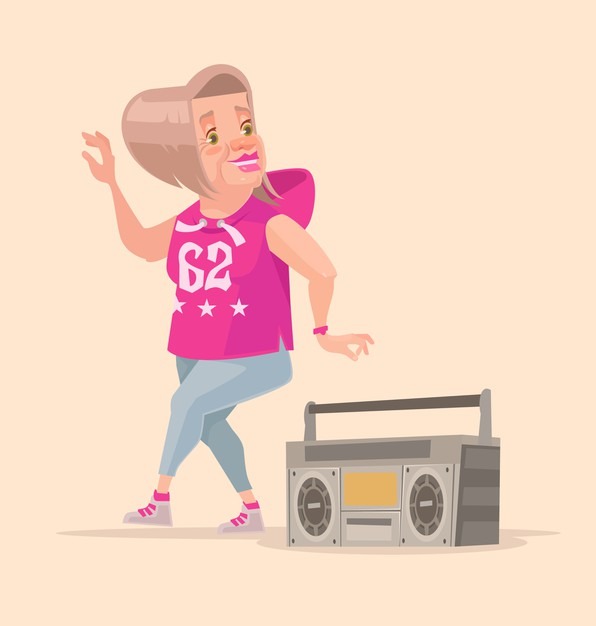The Incredible Benefits of Music on Brain Plasticity: Keeping Your Mind Young
We have now firmly established that music and exercise are a stellar combination for holding off cognitive decline and developing new neural pathways. But, what if we take away the element of exercise, and just listened to music, would there be any noticeable, or even significant benefits of music for our aging brains and bodies? I am here to say the answer is a yippee-do-dah YES!
The Science Behind Music and Brain Activation
Research first done at the Wallenberg Neuroscience Center in Sweden, and later by researchers in Finland, found that when we listen to music both our listening areas and a smorgasbord of additional neural networks are activated.
Your science lesson for today: the bounty of benefits from listening to music are reflected in the part of our brain connected to motor activities (movement and exercise); our creative center; the part of our brain that releases the feel-good chemical dopamine; the area involved with emotions; and, critically important, the Prefrontal Cortex. This is the part of the brain involved with abstract decision making, social behavior, and in combination with the hippocampus, our precious memory.
Benefits of Music on Brain Plasticity
Listening to music seems to improve verbal fluency. There also exists a link between music and language as it relates to our ability to pull up, arrange and compose well-formed sentences.
And, it keeps our database of words at the ready. The good news from all this? New research indicates that listening to music induces brain plasticity—our brain’s ability to change, adapt and even grow, which may compensate for age-related cognitive decline. In other words, listening to music could keep our brains young. If that’s not good news, I don’t know what is! 😉
As they say, the devil is in the details, so let’s dive into the deep to see what we need to do to stave off becoming monosyllabic.
The Ideal Duration for Music Listening: What Research Says
The first question is what is the amount of time needed to create change in our brain?
At this moment in time, the science points to one to three hours, basically the length of a symphony or musical concert, a ballet, or an opera. Or, as I think about it, a suburban to urban commute on the bus or train, or a plane flight from Dallas to Washington, DC.
What is the best way to get the most benefit from listening to music? By focusing solely on the experience of listening or watching the ballet or opera, or even just concentrating on the scenery without multi-tasking. In other words, be fully present in the moment, to feel, hear, and take in the experience of listening without distraction.
Choosing the Right Genre: Classical vs. Rock and Roll
What kind of music does research show creates neuroplasticity in our aging brains?
I have mentioned this before, but the Oscar goes to classical, followed by instrumental, jazz, or any music that doesn’t have a rock and roll beat. Rock and roll music is actually detrimental to our brains (dang it) for a variety of reasons, some of which involve the timbre, tonal, and rhythmic features of rock and roll.
I am keeping my fingers crossed that some smart researcher will find that in fact, rock and roll is the magical musical genre that cures dementia and Alzheimer’s in under a month.
However, until I see it published in a respected peer-reviewed journal, it looks as if it’s more Bach and less Bachman-Turner Overdrive on our playlists.
Until next time… Be Vibrant!
Share Your Thoughts…
Share your favorite classical piece in the comments below and join our community of music enthusiasts!
Subscribe to Receive
Vibrant Aging™ Tips
Delivered Right to Your Inbox
&
Vibrant Aging™ Coach




